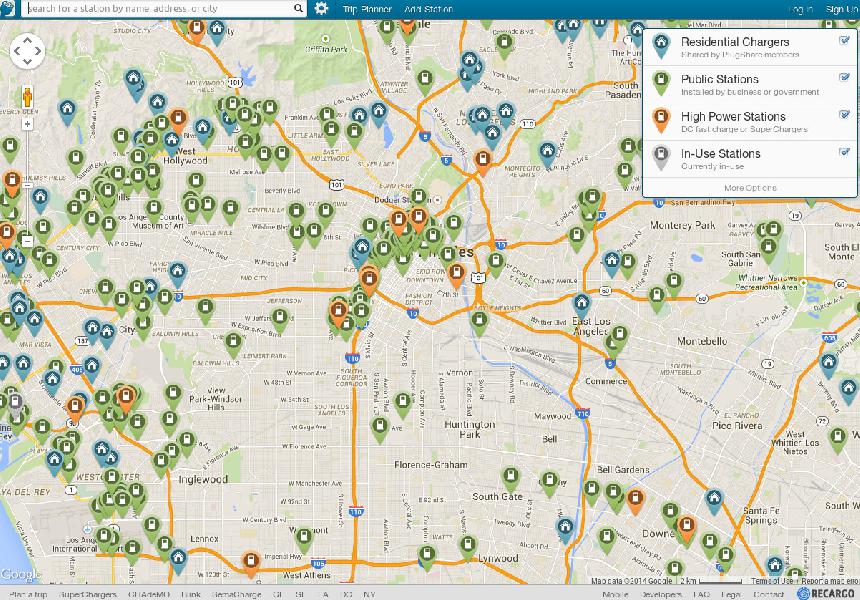Electric cars have become the darlings of the ecological set, and have been given many freebies by the government. These freebies include a huge government loan to Tesla that basically turned it into an industrial phenomenon, access to HOV lanes, free charging stations at government buildings like civic centers and schools, and tax incentives.
While the broad population, through its taxes, has been helping to start the electric vehicle business, the benefits of electric cars and plug-in hybrids isn't being distributed evenly.
Electric cars cannot easily be charged at home, because the voltages and current available on regular household circuits – 110 volts and 15 amps – is too low to charge the car rapidly. It takes 10 to 20 hours to charge a car fully. (It also requires that one live in a house with a garage with electricity. Apartment dwellers and people who park on the street – typical in older neighborhoods – cannot have electric cars.)
The charging times can be reduced to half an hour or so with charging stations that deliver electricity at a higher current, and a higher voltage. Thus, electric vehicle owners are dependent on high-current charging stations to get a quick charge.
Areas without charging stations are “high risk” areas in which one might find themselves unable to reach a charging station before the battery runs out.
In Los Angeles, these areas are East LA and South LA. A look at the map (at the Plugshare website) shows high densities of charging stations downtown, in Hollywood, and on the westside and Santa Monica, where wealthier people live.
Residents in these working class communities aren't going to be able to take advantage of the lower cost per mile for electricity compared to gasoline. (Electric costs around 2c per mile, and gasoline around 10c per mile.)
Effectively, the subsidies for electrical vehicles end up benefiting the wealthier people in Los Angeles.
Class conscious voters should demand equity in electrical infrastructure before approving more free money to be given to electrical vehicle owners who buy expensive cars.
Tax incentives:
http://www.afdc.energy.gov/laws/matrix?sort_by=tech http://www.afdc.energy.gov/laws/search?loc[]=CA&tech[]=ELEC

